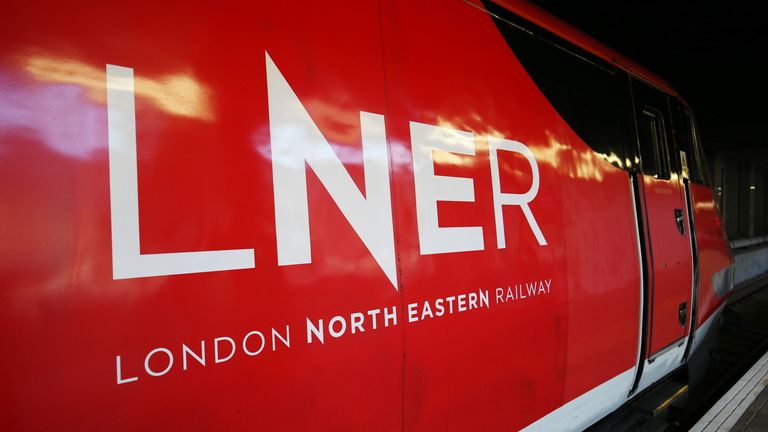Labour has urged rail union leaders to “get around the table” as drivers threaten fresh strikes despite a recent pay rise offer from the government.
Sir Keir Starmer’s attempts to resolve years of industrial action were hamstrung when ASLEF (the Associated Society of Locomotive Engineers and Firemen) announced its members employed by LNER would strike every weekend from the end of August to mid-November.
Rather than pay, this action from the train drivers’ union is down to disputes over working conditions, including claims of “bullying” behaviour by bosses, and “persistent breaking” of agreements by LNER management.
London North Eastern Railway operates services on the East Coast Main Line.
The new call for action from a union that donates large sums to the Labour Party drew criticism from many in the Conservative Party who claim the government is “being played” by ASLEF.
Writing in the Sunday Mirror, Transport Secretary Louise Haigh said: “I’ve made my frustrations clear to both parties and my message is simple.
“Follow this government’s lead – urgently get around the table, negotiate in good faith and stop this action before it starts.”
Nigel Roebuck, ASLEF’s lead negotiator, said the union is willing “to listen as well as talk” with LNER.
LNER refused to comment.
The union announcement of new industrial action came just days after Ms Haigh declared Labour had “put an end to the rail strikes after two long years”.
This was a reference to the pay deal that ASLEF recommended its members accept.
By announcing new action over a different issue so soon after, the secretary of state has been left open to substantial criticism from the Conservatives.
Tory MP Alicia Kearns claimed “Labour’s true loyalty lies with their union paymasters”.
Richard Fuller, the Conservative Party chairman, said: “This new Labour government is recklessly handing over cash to their union paymasters with ‘no strings’ attached.
“But in doing so, they are sending a dangerous signal to unions across the country that you can strike and be rewarded with a bumper pay packet with no improvements for consumers.”
ASLEF has denied it sees the new government as a “soft touch”.
Analysis: What is the cost for Labour to resolve strikes?
The RMT, which represents non-driver rail workers, is set to go into the Department for Transport on Tuesday this week to meet with rail companies for negotiations on their next pay round.
They will separately discuss pay with the Ministry of Defence for Royal Fleet Auxiliary (RFA) members.
Mick Lynch, the union’s general secretary: “We really need to move on from the belligerent and hostile attitude of the last government and reset industrial relations to allow rail workers and RFA seafarers to get on with the job.”
👉 Listen above then tap here to follow the Sky News Daily wherever you get your podcasts 👈
Mr Lynch regularly clashed with the Conservative government over pay and working conditions for his members.
Ms Haigh has claimed the industrial action on the railways in the past few years cost the country more than £1bn.
No total figure was put on the value of the offer to ASLEF, but it includes a 5% pay rise for 2022/23, 4.75% for 23/24, and 4.5% for 24/25.
Labour’s long-term plan is to nationalise the railways when the current operators’ contracts run out.



